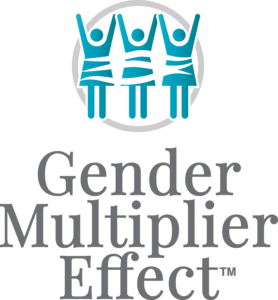Natasha Stott Despoja accepts her recognition together with people like you, who enact the GME by giving women a leg up.
By Andrea Stevenson Conner“We know when women have more influence over economic decisions, their families allocate more income to food, health, education, children’s clothing and children’s nutrition,” says Natasha Stott Despoja AO in a recent article in The CEO Magazine celebrating her selection as the national recipient of the 2021 Australian Awards for Excellence in Women’s Leadership. “We know that 90% of women’s income is reinvested back into the household, whereas men reinvest only 30-40%.”
Despoja’s statement underscores the significant impact of the gender multiplier effect. This is the idea that when you invest in women, the investment ripples out, benefitting not only the women you helped initially but also the people close to them—their families, friends, and communities or their teams, departments, and business units. In the biggest picture, the GME can have a positive impact on the global economy.
Despoja was raised by a single mom who certainly saw the impact of her childrearing efforts multiply when, in 1995 at age 22, Despoja became the youngest woman ever to enter the Australian Federal Parliament. In 2001, Despoja was recognized as a Global Leader for Tomorrow by the World Economic Forum. In 2019, Queen Elizabeth II appointed her as an officer of the Order of Australia for her “service to the Parliament of Australia … and as a role model for women.” In November 2020, Despoja was elected to the UN Committee on the Elimination of Discrimination Against Women.
Based on her work and experience, Despoja recommends the following actions in support of women, recognizing that these efforts will launch a GME ripple effect that will have a positive impact on many more people than the women initially helped.
“We can promote gender equality through economic stimulus measures, increase the value placed on women’s unpaid domestic labor and care through public policy measures, and develop strategies to value and fairly remunerate those working in female-dominated industries,” she says in The CEO Magazine article. “We can consider social and economic measures, such as universal child care and early education. And, we must continue to provide resourcing for reforms to address violence against women through both prevention and response.”
Despoja says the pandemic has been an especially difficult time for many women, including women in her former profession of politics, “so anything that can shine a spotlight on cultural change and gender equality is positive right now.”
Leaning into how helping one woman ultimately helps many, Despoja adds: “I share this award with anyone who works to keep women and children safe and to promote gender equality.”
That statement calls us all to action.
What can you do today to elevate a woman? Do it. And then watch the good multiply.



Recent Comments